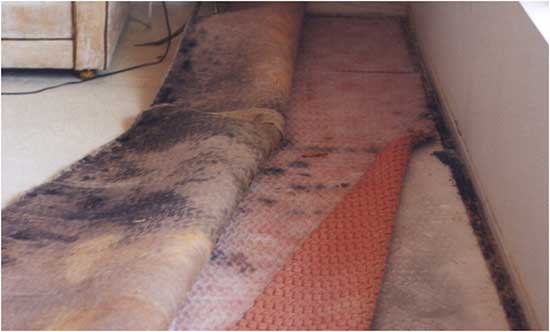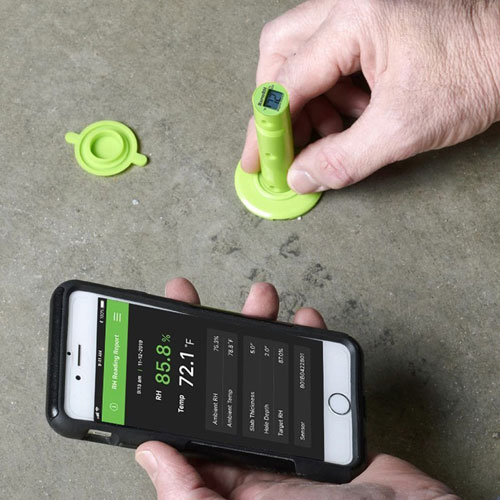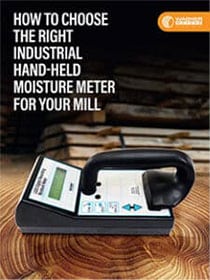Why Your Carpet Smells and What You Can Do About It
It’s an uncomfortable question. At some point in your life, you ask, “Why does my carpet smell?” You take out all the garbage, wash out the trash cans, and clean out your fridge… but the smell remains.
Carpets smell because their fibers trap the surrounding odors. Moisture is a major cause of foul smells getting trapped in the carpet fibers and underlayment beneath it. Carpets soak up spills, pet messes, and standing water, which leave behind an unpleasant odor.

Mold and mildew in carpeting or the padding underneath can pose a significant health risk.
Carpet also absorbs moisture out of the air when there’s high humidity. This leads to airborne odors, like smoke, getting trapped in the carpet. Once the moisture gets into and below the carpet, mold and mildew can grow, which creates or compounds awful smells.
Let’s break down where and why certain smells get into your carpet.
Mold and mildew: The biggest problem associated with mold and mildew in your carpet is the health risk they pose. The moldy, musty smell is the late warning sign that something nasty is growing where you can’t see it, most likely under the carpet padding.
Concrete slab: All concrete slabs have moisture in them. Sometimes, an underground moisture source may continually add moisture to the slab. If the slab is holding more moisture than its surroundings, the excess moisture will evaporate. The carpet underlayment may absorb it all, which can lead to mold or mildew. Moisture may also get into the carpet fibers.
Above-ground moisture: As noted above, any moisture source can bring its associated smells with it when your carpet soaks it up. As the carpet dries, the smells remain in the carpet fibers. So rainwater tracked in by wet boots or leaking in from the roof can cause a smelly carpet. Any type of leak, flood, spill, or even high humidity is a source of moisture that the carpet can soak up.
Pet odors: Well, this isn’t any great mystery. Housepets that pee or otherwise make a mess on your carpet are leaving horrible odors behind too.
Aging carpet: This is one cause of carpet smells that people rarely think about. You notice when a spot wears thin in your carpet after years of use. Well, as the fibers break down, they emit their own “old carpet” smell. Unfortunately, an older carpet may smell simply because its owner hasn’t cleaned it often enough over the years.
Smoke: If you have a fireplace or a smoker lives in the house, your carpet absorbs the smoke. This is a difficult smell to remove, if not impossible sometimes. Fireplace smoke should mostly rise through the chimney flue instead of filling the room. Keeping the flue clean helps with that. There’s not much that can be done about cigarette or cigar smoke other than not smoking.
Spills: Life happens and things spill along the way. There are two main reasons that spills and stains make your carpet smell:
- You cleaned the mess up wrong. Many people rub furiously at the spill or stain to clean it up. The problem is this just embeds the mess deeper into the carpet fibers. Waiting until the spill has dried to clean it up also gives it time to soak into the fibers and down to the padding. And it’s a problem if you don’t clean it up at all other than picking up what fell on the carpet.
- Food and drinks account for most spills. As an organic material, just like pet messes, the bacteria associated with food and drink release unpleasant smells over time. Food and drink can also create some of the hardest smells to get out of your carpet.
How to Remove A Bad Smell from Your Carpet Yourself
In an ideal world, you eliminate the cause of the smell before it takes hold. When your cat pees on the carpet or your kid spills their milk, you want to clean these up immediately. The general process for a fresh mess is to:
Gently blot the area to soak up as much as possible. You can use cold water to help blot and get more of the mess absorbed into the paper towel or cloth.
Sprinkle the area with a cleaning agent. The cleaning agent you want to use depends on the source of the spill. For example, dog and cat urine contains specific enzymes and proteins that typical cleaning agents can’t remove. If you own a dog or cat, you want to have an enzymatic cleaner on hand that’s designed to neutralize their urine.
For many carpet smells, you can use common household cleaners like baking soda, Borax, or white vinegar. The exact formula and process can differ based on what you’re cleaning up. If you’re using a cleaning agent powder, you’ll let it soak up more of the mess. Always consult the carpet manufacturer for specific guidance on cleaning products to utilize.
Lightly scrub the area with a soft carpet brush. You still want to be careful that you’re not grinding the mess into the carpet. Instead, you’re trying to mix the cleaning agent with the mess so it can remove or neutralize what’s causing the smell.
Let the area dry. If you can, open windows to get some fresh airflow. You can also use dehumidifiers or space heaters to dry out the air above the carpet.
Getting Professional Help to Get Rid of a Persistent Smell
If the carpet smells and there’s no obvious immediate source, you may need professional help. While you can buy carpet shampoos, your typical domestic vacuum doesn’t have the power to clean up a deep wet cleaning product. You might rent a commercial carpet cleaner. If you want to do regular wet carpet cleaning, then you might consider buying one.
You can also hire a professional carpet cleaner. Check his or her reviews and history. When carpet cleaning is done wrong, the smells in your carpet will get stronger after a professional cleaning. This can happen if the professional cleaner doesn’t properly remove enough of the water they added to the carpet during the cleaning.
Sometimes, the smell is too embedded in the carpet and underlayment to get out. If so, you’ll need to rip up and replace the carpet.
When the Underlying Cause of the Smell is Moisture

RH testing provides a reliable indication of the overall moisture condition of the concrete floor slab.
If the cause of the odor is excessive moisture, whether in the padding or the concrete slab beneath the carpet, you need to address the moisture issue or the smell will return. Cleaning or replacing the carpet won’t get rid of it.
The moisture source may be obvious. For example, the basement flooded or the water boiler exploded and now the carpeting smells. Leaky pipes could be another obvious water source. Even with an obvious source, you always want to look for high moisture spots within the concrete or wood-based subfloor.
The concrete could have absorbed water from the external source. Fixing the pipes or boiler, or cleaning up all the obvious water isn’t enough. The concrete slab may easily have absorbed water through the carpet and padding. The moisture that’s now seeped into the slab could become an ongoing problem.
The excess moisture could have to do with how much water was in the concrete when it was poured. A high water-to-cement ratio in the concrete mix could mean that the slab wasn’t given enough time to dry before the carpeting was installed.
You want to find any potential areas with excess moisture in the slab before installing new carpeting. After removing the old carpet and padding, you can start with a handheld concrete moisture meter to find any areas that are possibly high moisture spots. Then always follow up by performing an in-situ relative humidity (RH) concrete moisture test in the areas of the slab where the surface meter measured the highest.
RH test results give you a reliable indication of the concrete’s overall moisture condition. You’ll want this information to help you determine the next steps and make an informed decision about when it’s safe to install new carpeting over the concrete.
Don’t Worry – Whatever It Is, You Can Get the Smell Out
A smelly carpet ruins a room. Nobody wants to be there. Fortunately, you have effective options for removing nasty odors, even the odors caused by any of the ways excess moisture gets into your carpet.
Hopefully, you can remove the odor without having to remove the carpet. If you have to remove the carpet, take that opportunity to test for moisture within the concrete slab so you can make sure your new carpeting gets a fresh start.
Jason has 20+ years’ experience in sales and sales management in a spectrum of industries and has successfully launched a variety of products to the market, including the original Rapid RH® concrete moisture tests. He currently works with Wagner Meters as our Rapid RH® product sales manager.
Related Posts via Taxonomies
Last updated on August 18th, 2022




I hired a company qho cleaned the carpet the carpet now smell aa if is stale what can i do
Normah:
I would call the company that cleaned the carpets and get their input on this. Good luck.